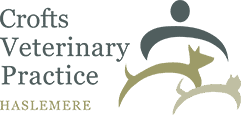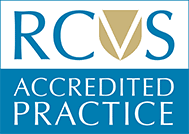Does your dog come into regular contact with other dogs? Maybe out on walks, at the park, or when they’re staying in kennels? If so, we’d highly recommend a Kennel Cough vaccine or booster. And, with our new oral vaccine, it’s now even easier to protect your dog.
Kennel Cough, or infectious tracheobronchitis, is a very contagious respiratory disease. It’s transmitted by close contact with an infected dog and can be associated with boarding kennels, therefore it’s especially important to ensure your dog is covered if you’re planning a trip away.
Please call us today on 01428 653056 to book your dog's kennel cough vaccination or book by clicking here.
What are the symptoms of Kennel Cough?
The primary sign to look out for is a deep hacking cough, which can sometimes lead to retching, sneezing, snorting, gagging or vomiting. In some cases, you may only notice your dog starting to cough after excitement or exercise and you may also notice a discharge coming from your dog’s eyes or nose. Some dogs may get a fever, and in very rare cases may progress to pneumonia. Symptoms will start after three to 10 days – and can go on for up to three weeks. Often the cough is worse at bedtime causing sleepless nights all round.
How is Kennel Cough diagnosed?
Diagnosis is often based on the clinical signs and the history given by the owner, also if the dog is housed together with lots of other dogs that are all presenting similar signs, it makes the diagnosis of kennel cough more probable. If a gentle palpitation of the throat causes a retching cough, Kennel Cough is likely.
What treatment is available for Kennel Cough?
There is no specific treatment for viruses involved in Kennel Cough, but antibiotics are sometimes used to treat bacterial infections. Infected dogs should be rested and isolated from other dogs for around 14 days. In most cases, dogs will recover from Kennel Cough within three weeks. Ensure they are living in a well-ventilated area and avoid the use of a lead and collar. To aid recovery, your dog may be prescribed cough suppressants or anti-inflammatories. Sometimes antibiotics may be required to target Bordetella Bronchiseptica.
What’s the best way to prevent Kennel Cough?
The best way to prevent Kennel Cough is through vaccinations. The vaccine is a quick and painless procedure for your dog in the form of the new oral solution that’s now available at Crofts. The oral method is easier to administer and therefore may reduce stress for your dog and you as the owner.
The Kennel Cough vaccination is given once a year. Depending on individual circumstances it may not be given at the same time as their annual booster. Please contact us if you’d like more detail.
If you’re going on holiday, it’s important that your dog is vaccinated against Kennel Cough. Often, kennels will not accept your dog otherwise. Prepare in advance as the oral vaccination should be given at least three weeks before their stay.
If you are concerned your dog may have caught Kennel Cough and is presenting symptoms, speak to a member of the team on 01428 653056 for advice. Alternatively, if you would like to arrange a Kennel Cough vaccination for your four-legged friend, click here to book or just give us a call.
Don’t forget, if you’re a Pet Health Plan member, the kennel cough vaccine is included at no extra cost.
Please call us today on 01428 653056 to book your dog's kennel cough vaccination or book by clicking here.





